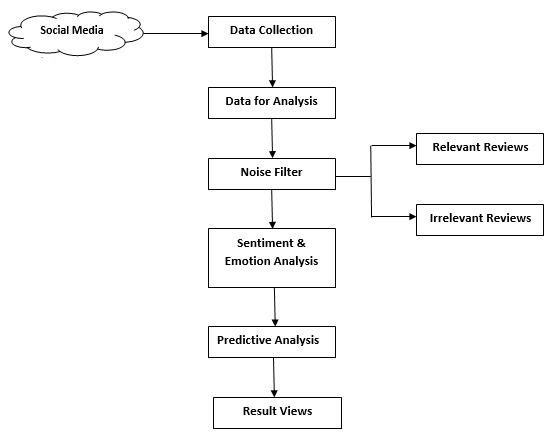Unmasking the Digital Footprint: The Power and Process of Social Media Investigations
In an era where nearly three-quarters of Americans are active on social media, the digital footprints left behind on platforms like Facebook, Twitter, and Instagram can tell revealing stories about our lives. These traces, whether they are casual posts, shared photos, or public conversations, are not just personal artifacts; they are valuable resources for investigators. Social media investigations, also known as social media forensics, delve into this ocean of information, searching, collecting, and analyzing publicly available content to gather evidence for various legal contexts. From supporting court cases to enhancing corporate decision-making, these investigations have become an essential tool in the modern investigative toolkit. This article explores the intricacies of social media investigations, their importance, the detailed process, and the challenges investigators face.

What Is Social Media Investigation?
A social media investigation is the systematic process of searching, collecting, and analyzing publicly available content on social media platforms such as Facebook, LinkedIn, Instagram, Snapchat, and Twitter. This practice, also known as social media forensics, is essential for gathering evidence in various legal contexts, including court cases, custody battles, and background investigations. With approximately 74% of Americans having a social media presence, these platforms provide a vast repository of information that can be invaluable for investigators.
Key Aspects of Social Media Investigation
Collection and Analysis of Evidence
The evidence gathered during a social media investigation can come in various forms, including posts, photos, and private conversations. This information can be critical in legal proceedings, helping to establish character, support alibis, and provide concrete evidence in court. For instance, in custody battles, evidence of a parent's alleged drug use can be corroborated by photos and status updates posted on social media. Geo-tagged posts can prove a key witness's presence at a crime scene.
Application in Legal Cases
Social media investigations are increasingly crucial in both criminal and civil cases. They offer direct and corroborative evidence, risk assessment, and ongoing monitoring of activities. For example, evidence of drug use, violent behavior, discriminatory views, inappropriate sexual content, and company policy violations can all be found through social media investigations. These investigations can strengthen legal cases or even lead to early settlements or outright wins.
Why Social Media Investigations Are Essential for Corporations?
Informing Decision-Making and Litigation Strategies
Social media investigations provide corporations with critical insights that inform their decision-making and litigation strategies. In the HR context, these investigations can reveal important information about potential or current employees, guiding hiring decisions, promotion choices, and internal investigations. In litigation, social media evidence can significantly strengthen a case.
Routine Checks and Investigation
Corporations may conduct social media investigations for various reasons, including routine employee background checks, HR and fraud investigations, regulatory compliance, and ongoing litigation. Given the potential for individuals to remove or alter information, timely social media investigations are crucial.
The Process of a Social Media Investigation

Obtain Subject's Personal Information
Collect the subject's name, date of birth, and photo. This foundational information is crucial for accurately identifying and verifying the subject's social media profiles.
Locate and Verify Profiles
Identify and verify the subject's publicly available profiles on various social media platforms. This involves searching through common and niche social media platforms to ensure comprehensive coverage.
Analyze Online Content
Examine posts, photos, comments, and other online content for relevant information. This step requires careful scrutiny to identify any posts or interactions that may provide useful evidence.
Save Relevant Information
Document and store the relevant information in its native format. This ensures that all contextual details are preserved and can be reconstructed if needed for litigation.
Prepare a Report
Compile the findings into a comprehensive report, detailing the evidence collected and its relevance to the investigation.
Monitor Ongoing Activity
Continue to monitor the subject's social media activity to capture any new information that may arise. This step is crucial for keeping the investigation current and relevant.
Social media investigations often overlap with standard background checks, but they also require unique approaches and ongoing monitoring that are not typically part of background investigations.
Challenges of Performing Social Media Investigations
Lack of Experience
Many companies task their in-house teams with conducting social media investigations. While some digital investigators are adept at analyzing online data, many corporate staff members lack this specialized skill set. This inexperience can lead to inefficient investigations, higher costs, and potentially missed critical information. To address this, organizations should invest in training their staff or hire skilled investigators with expertise in social media analysis and specialized investigation software to streamline the process.
Identification Issues
Accurately identifying relevant social media accounts is crucial. Without precise identification, investigators might spend time and resources on incorrect or irrelevant profiles, leading to erroneous conclusions and poor decision-making. This can adversely affect the outcomes of investigations and litigation. Employing advanced search tools and verification techniques can significantly improve the accuracy of identifying the right subjects, ensuring that the collected data is pertinent and reliable.
Platform Variation
The multitude of social media platforms, each with its unique interface, post formats, and interactive features, poses a significant challenge. Investigators must be well-versed in navigating and extracting data from these diverse environments. Constantly updating their knowledge and skills to keep pace with new platforms and evolving features is essential for effective investigations. This continuous learning ensures that investigators can efficiently manage and interpret data from various social media sources.
Data Complexity
Social media data encompasses various types, such as embedded files (links, photos, videos, gifs) and metadata. Metadata, which includes information about the data itself, such as ownership details and timestamps, is particularly valuable but can be challenging to extract and interpret. Specialized tools and expertise are required to handle this complexity. Advanced data extraction technologies and techniques are crucial for accurately managing and leveraging this multifaceted information, making it actionable for investigations.
Best Practices for Social Media Investigations
Act as a Neutral Observer
Investigation teams should review and collect only publicly available social media information. They should not "friend" or otherwise connect with subjects on social media as part of their investigation. Creating a fake profile to gain access to private information can violate social media websites' terms and conditions, and participating in a conversation or commenting on a post can compromise an investigation or litigation matter. Staying neutral ensures the integrity of the investigation.
Save Information Wisely
When performing a social media investigation, be careful about how you save the information you find. The format of a message thread, comments on a post, or other data on social media can contain valuable contextual information. Therefore, investigation teams should save all relevant information in its native format so that it can be reconstructed in its original form should it be needed in litigation.
What about taking screenshots? Screenshots are a limited but quick and easy way to capture online information. When taking screenshots, be sure to capture the entire screen, including the date and time. To ensure that screenshots are admissible in court, one must be able to authenticate them by using an authenticated web capture tool or hiring a notary or other neutral witness to confirm that the screenshots are accurate.
Leverage Technology
Technology can streamline and simplify social media investigations. From performing efficient searches of enormous amounts of data to analyzing information for relevancy, the right tool can help you perform more thorough social investigations in less time. Social media investigation tools, like Knowlesys Intelligence System can also organize information and make it easier to digest. Advanced software can automate many aspects of the investigation, increasing efficiency and accuracy.
Conclusion
Social media investigations are a powerful tool for gathering evidence and supporting legal cases. By following best practices and leveraging technology, investigators can navigate the complexities of social media to uncover crucial information that aids in decision-making and litigation strategies. With the right approach, social media investigations can provide invaluable insights and contribute significantly to successful outcomes in various legal and corporate contexts.